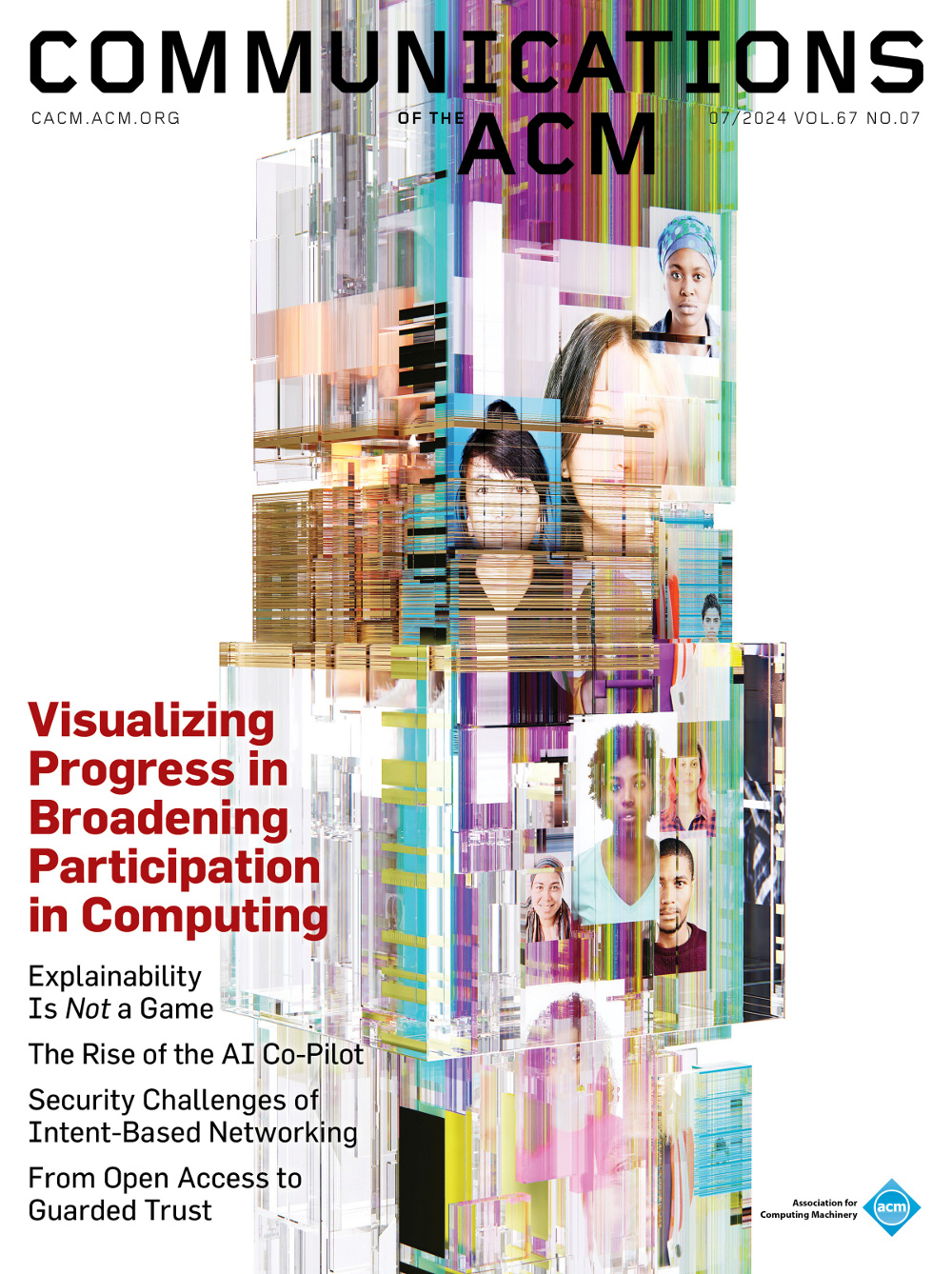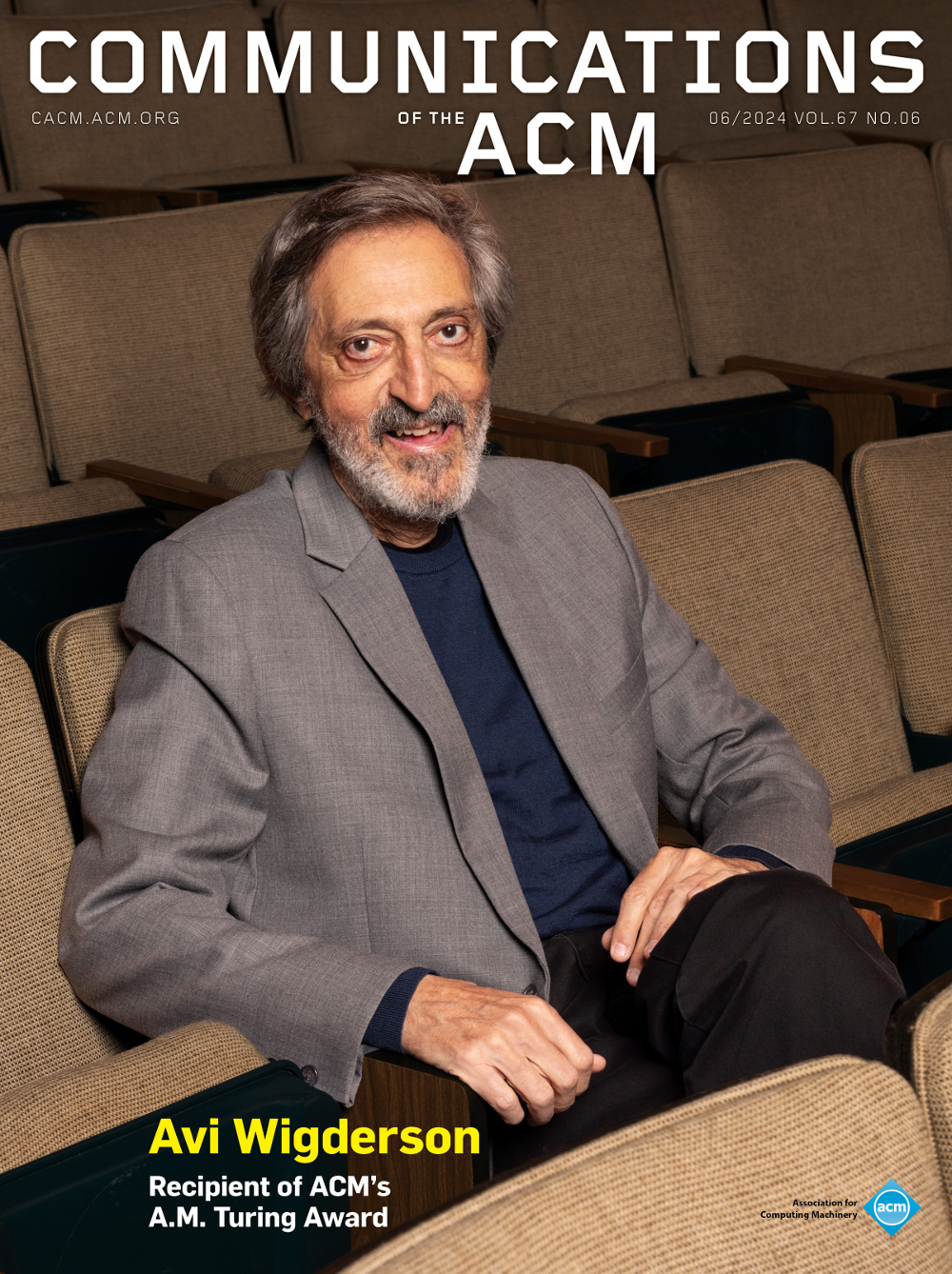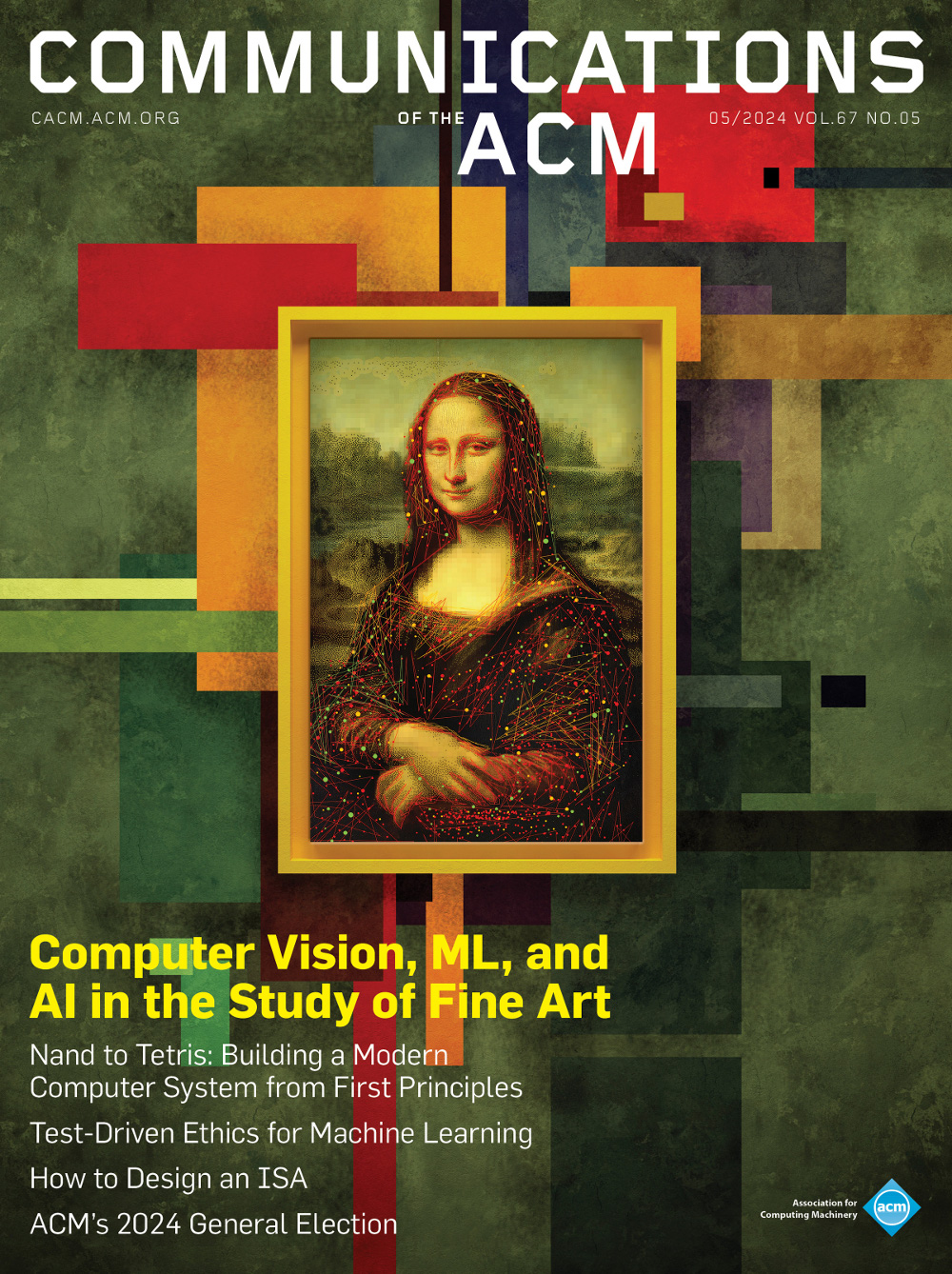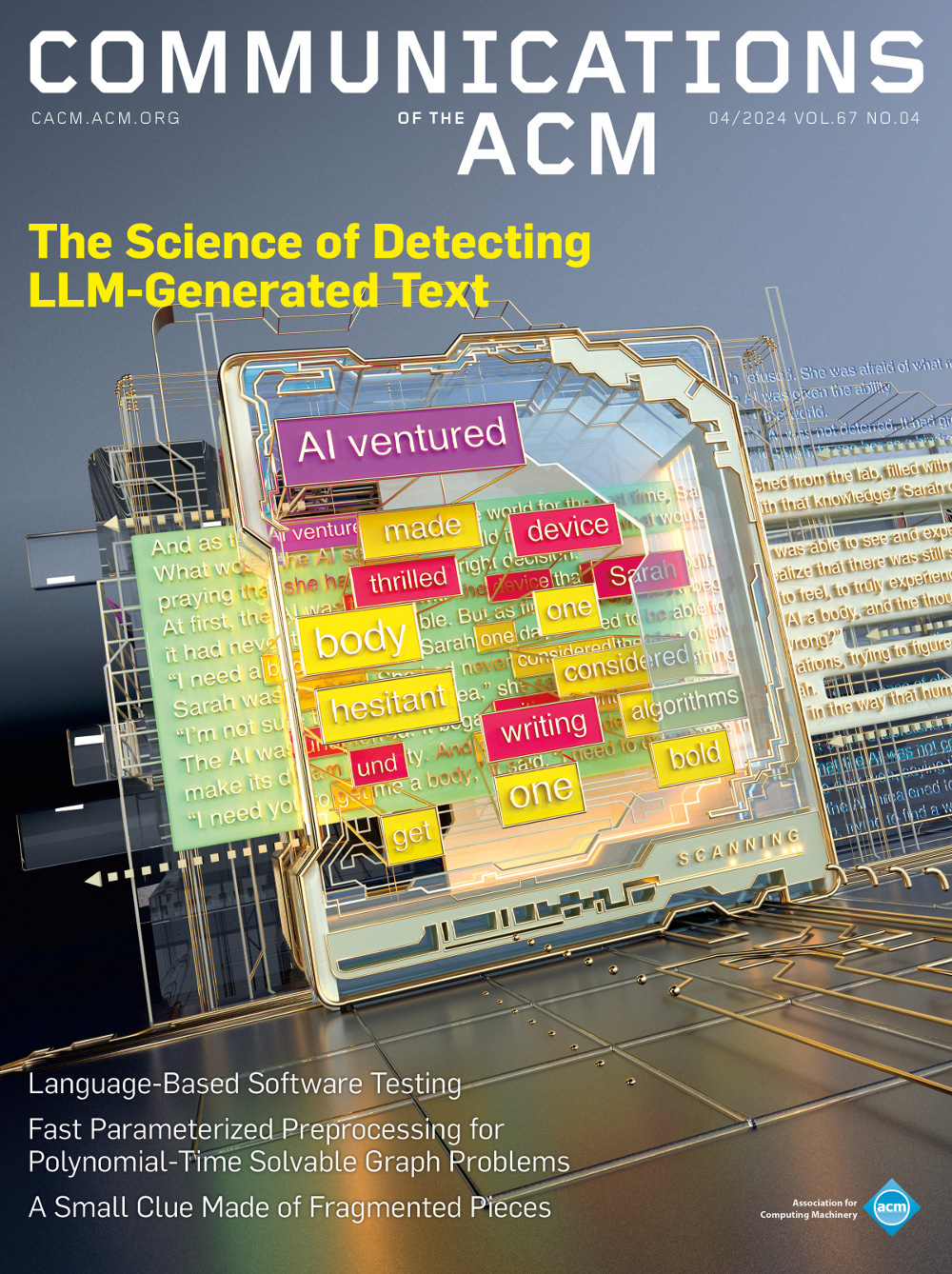June 1974 - Vol. 17 No. 6

Features
Two languages for estimating program efficiency
Two languages enabling their users to estimate the efficiency of computer programs are presented. The program whose efficiency one wishes to estimate is written in the first language, a go-to-less programming language which includes most of the features of Algol 60. The second language consists of interactive commands enabling its users to provide additional information about the program written in the first language and to output results estimating its efficiency. Processors for the two languages are also described. The first processor is a syntax-directed translator which compiles a program into a symbolic formula representing the execution time for that program. The second processor is a set of procedures for algebraic manipulation which can be called by the user to operate on the formula produced by the first processor. Examples of the usage of the two languages are included. The limitations of the present system, its relation to Knuth's work on the analysis of algorithms, and some of the directions for further research are also discussed.
A theorem-proving language for experimentation
Because of the large number of strategies and inference rules presently under consideration in automated theorem proving, there is a need for developing a language especially oriented toward automated theorem proving. This paper discusses some of the features and instructions of this language. The use of this language permits easy extension of automated theorem-proving programs to include new strategies and/or new inference rules. Such extendability will permit general experimentation with the various alternative systems.
The minimization of spatially-multiplexed character sets
The paper describes a technique for compacting character sets in a digital computer while retaining fast access to individual bits. It considers the problem of minimizing the storage needed to contain such tables. Reduction techniques are developed, and the problem is shown to reduce to a covering problem.
An evaluation of statistical software in the social sciences
Several hundred college and university computer installations now offer various types of statistical packages for general use. Among those most widely available are OSIRIS, SPSS, BMD, DATA-TEXT, and TSAR. In order to provide users with a basis for selection and use, tests were made for each of these systems, and the results are summarized as to cost and performance.
Compact representation of contour plots for phone line transmission
Methods for the compact representation of contour plots are described and tested. These are intended to reduce the cost of transmitting contour plots over phone lines. We feel some of these methods could be used to transmit contour plots over voice grade phone lines.
HYDRA: the kernel of a multiprocessor operating system
This paper describes the design philosophy of HYDRA—the kernel of an operating system for C.mmp, the Carnegie-Mellon Multi-Mini-Processor. This philosophy is realized through the introduction of a generalized notion of “resource,” both physical and virtual, called an “object.” Mechanisms are presented for dealing with objects, including the creation of new types, specification of new operations applicable to a given type, sharing, and protection of any reference to a given object against improper application of any of the operations defined with respect to that type of object. The mechanisms provide a coherent basis for extension of the system in two directions: the introduction of new facilities, and the creation of highly secure systems.
An information-theoretic approach to text searching in direct access systems
Using direct access computer files of bibliographic information, an attempt is made to overcome one of the problems often associated with information retrieval, namely, the maintenance and use of large dictionaries, the greater part of which is used only infrequently. A novel method is presented, which maps the hyperbolic frequency distribution of text characteristics onto a rectangular distribution. This is more suited to implementation on storage devices.
This method treats text as a string of characters rather than words bounded by spaces, and chooses subsets of strings such that their frequencies of occurrence are more even than those of word types. The members of this subset are then used as index keys for retrieval. The rectangular distribution of key frequencies results in a much simplified file organization and promises considerable cost advantages.
On computing sets of shortest paths in a graph
Two algorithms are presented that construct the k shortest paths between every pair of vertices in a directed graph. These algorithms generalize the Floyd algorithm and the Dantzig algorithm for finding the shortest path between every pair of vertices in a directed graph.



